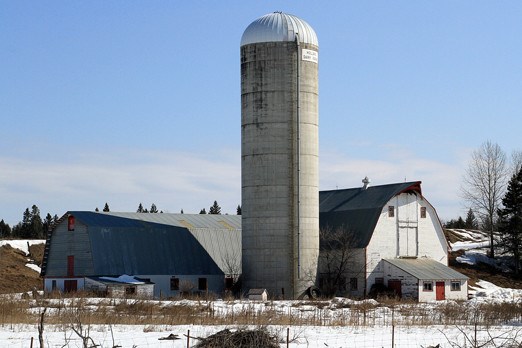For centuries farmers followed in their parents’ footsteps.
Cows were milked at dawn, crops were planted in the spring and harvested in the fall. There was little science involved.
Today’s farmers are among the best and brightest, said Jason Reid, president of the Thunder Bay District Soil and Crop Association, on Thursday, the final day of the 2011 Spring Farm Conference held at the Kakabeka Falls Legion.
The conference is all about bringing home new ideas to make their jobs more effective and efficient, he said.
“We go home with a lot to think about. Yesterday we had presentation from a researcher out of New York who is doing a lot of new and innovative things about getting … a higher feed quality for our cattle to try to produce more milk or more beef in synch with environmental practices to try to reduce the amount of grain we need to produce by growing better quality forages,” Reid said.
As group, he added, the 200 or so farm operations in the Thunder Bay district are about as progressive as it gets in the industry.
It’s out of necessity as much as anything else, Reid said, and has a lot to do with demographics. The average age of a farmer in the region is about 51, about a decade younger than the province as a whole.
“We have a substantial number of producers who are very young, very well educated and so very open to new ideas and new production techniques in order to produce what the consumers are really looking for,” Reid said.
“In the past it’s been a very follow-in-your-parents-footsteps (business). In the past we’ve also been for many years a very progressive area. As Thunder Bay farmers, we’re very isolated, so we have to be a little more resourceful. But we are very educated and it’s becoming more and more critical if you want to stay profitable in the agriculture, you have to be ahead of the game.”
According to Reid, there are about 200 farms in the district, ranging from full-fledged dairy operations to hobbyists who hold down full-time work and grow produce or raise livestock on the side.
Jeff Burke, a director with the Thunder Bay Soil and Crop Improvement Association, said the conference is all about networking. Suppliers, banks and insurance and business software companies get to showcase what they have to offer to the local market, while farmers get to learn about the latest from industry as well as each other.
“Farmers get to hear topics including forest production, cropping systems, equipment, new government policies and it gives a chance for the local farmers to see what’s going on out there outside of our immediate region,” he said.
With an ever-growing emphasis on locally produced food, building a stronger agricultural community can have a major impact on Thunder Bay and its residents.
The conference is a great way for farmers to increase their operation, or for the younger set, establish themselves in the marketplace.
“It helps diversify our food system in the North,” Burke said.
The two-day conference ends on Thursday.
Sign in or register
- Messages
- Post a Listing
- Your Listings
- Your Profile
- Your Subscriptions
- Your Likes
- Your Business
- Support Local News
- Payment History
Registered Users
Already have an account?
New Users
Create a free account.
